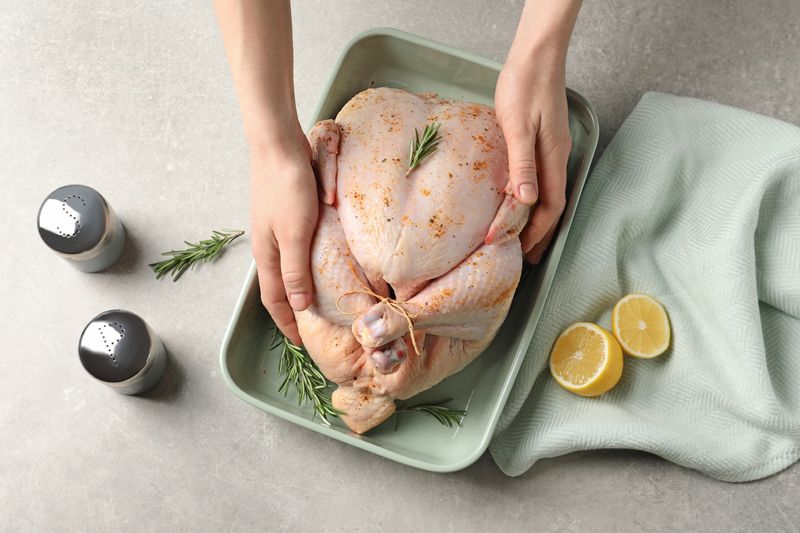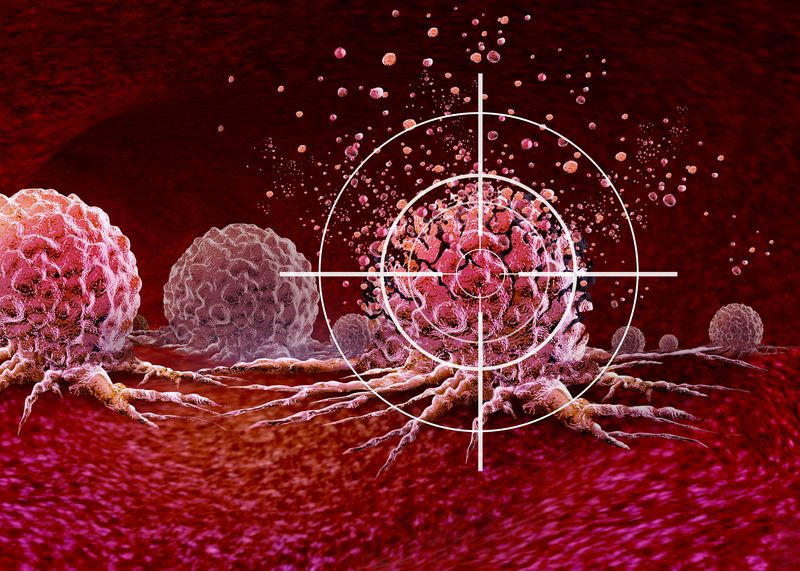As Thanksgiving rolls around once again, so too does an increased chance of spending the following days sitting on the toilet, fighting for your life. Not just from eating too much of your grandma’s delightfully creamy mashed potatoes (curse you, lactose intolerance), but from some pretty dodgy food handling – including the big no-no that is washing raw turkey.
Why you shouldn’t wash a raw turkey
While rinsing the potatoes and veggies for your side dishes is unlikely to do much harm, a raw turkey – or chicken for that matter – is the major Thanksgiving dinner component that shouldn’t be washed.
That’s because raw turkey is home to all kinds of bacterial nasties, including Salmonella, Campylobacter, and Clostridium perfringens. When you wash it, the juices that splash around can transfer these bacteria to whatever surface they end up touching.
“You’re actually spreading bacteria up to 5 feet [1.5 meters] away,” Janell Goodwin, a technical information specialist at the US Department of Agriculture (USDA), told WTOP News. “Items that you have sitting over on the other counter can be cross contaminated with these raw juices.”
That silver cutlery you left nearby after painstakingly polishing it? Yep, you’ve got to wash it up and start again. The salad your mother just lovingly prepared? Sorry mom, it’s going in the bin.
The risk of not doing so is ending up with a bout of food poisoning, with the bad boys of bacteria gifting you with delightful symptoms such as diarrhea, stomach cramps, nausea, vomiting, and a fever. These can last anywhere from a few hours to several days, and can be mild or serious.
This kind of contamination isn’t a small problem, either. For example: C. perfringens causes nearly 1 million cases of food poisoning in the US each year, but, according to the Centers for Disease Control and Prevention, most outbreaks happen in November and December and are often linked to holiday foods like turkey.
Other top tips for turkey safety
Washing a turkey isn’t the only stage of the preparation process that can land you with an unpleasant trip to the toilet; it’s also important to wash your hands with warm, soapy water for at least 20 seconds before and after handling raw turkey and its packaging. Similarly, wash up anything that was used to prepare it.
As for cooking, it’s recommended to set the oven temperature to at least 163°C (325°F). To check that the turkey is fully cooked, you can use a meat thermometer – the safe internal temperature for turkey is considered to be 73.9°C (165°F).
When it comes to leftovers, ensure that anything left out at room temperature is put in the fridge within two hours of cooking, and for cooked turkey specifically, make sure to eat it within three to four days – or whack it in the freezer.





